[NintendoEverything Review] BIT.TRIP Presents Runner2: Future Legend of Rhythm Alien
Posted on 12 years ago by Austin(@NE_Austin) in Features, Reviews, Wii U eShop | 0 comments
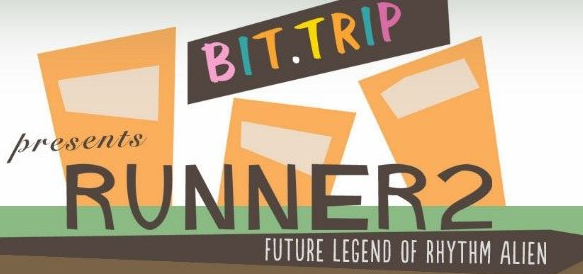
Author: Jack
Upon commencement of the critically acclaimed BIT.TRIP series, Santa Cruz-based developer ‘Gaijin Games’– formerly a simple and passionate three-man group freely designing titles emulating the Atari games they loved– was rife with change. In addition to lead programmer and co-founding member Chris Osborn’s departure to form TRACER, in an extremely swift, savvy, and hostile move, Gaijin CEO Alex Neuse went on a “company acquisition rampage” and absorbed small-time developer ‘Robotube’ in an effort to branch out and emulate large-scale publishers such as Activision and Electronic Arts, more than doubling the amount of staff.
Gaijin’s first post-acquisition move was the announcement of a sequel to perhaps the most accessible game in the slightly niche-audience BIT.TRIP canon in BIT.TRIP RUNNER, a fluid, seamless, and addicting rhythm game ingeniously masquerading as an on-rails platformer (you can read my review of the original here). Early game screenshots indicated the sequel, officially named Bit.Trip Presents Runner2: Future Legend of Rhythm Alien, would be comprised of a completely different aesthetic than what we’d come to expect from BIT.TRIP, capturing more of a mainstream indie vibe as opposed to a modern take on Atari games. Would Runner2 expand upon the seedlings the first Runner game planted and blossom into a successful sequel, or would the ruthless, downright blasphemous moves Alex Neuse made as a businessperson osmose into the game and make it cave-in from sheer shallowness?
It’s the first one.
[Video Feature] Eggbusters – Mario Kart 64
Posted on 12 years ago by Austin(@NE_Austin) in Features, Videos | 0 comments
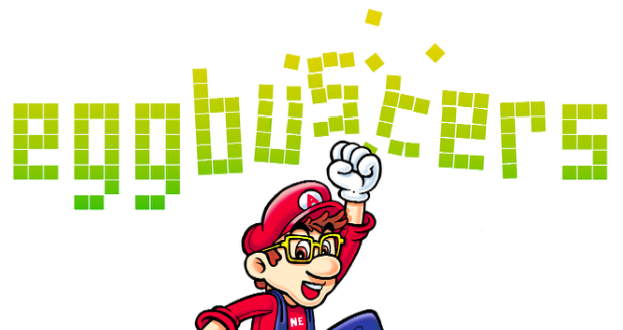
Another week, another glitch(es). Not quite as absurd as last week’s Twilight Princess mega-glitch, but what’re you gonna do? At least I fixed the lighting on my face! =D
Direct transcript of the directions (courtesy of MarioKart Wiki) after the break! Artwork courtesy of Andrew Nixon. :]
SCIENCE: Does the Wii U update really improve loading times?
Posted on 12 years ago by Austin(@NE_Austin) in News, Podcast Stories, Wii U | 2 Comments
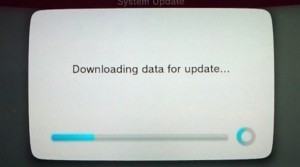
Wake up everyone, it’s time for science!
So today Nintendo released a small Wii U firmware update, and since then I’ve seen a few outlets claim that it “seems” like the update has sped things up on their consoles. Unfortunately, “seeming” isn’t good enough for me, and since I hadn’t taken it upon myself to update my console yet, I decided to test some load times both before and after the update to see how they compared. A few things to note: Firstly, the update auto-triggered (without giving me the option to opt out) halfway through my testing so I couldn’t get as many readings as I wanted in the “before” category. Secondly, I eliminated two results that were clearly technical outliers (a 35 second post-update “Miiverse” load and a 39 second pre-update “Settings” load) because that’s how statistics work.
Here’s what I found:
Startup
What: Time from hitting the power button to when users are selectable.
Pre-Update: 19.6s
Post-Update: 25.4s, 25.6s, 25.2s
Conclusion: Hard to say since the update auto-triggered before I could test more than one pre-update startup time. It would seem that things have gotten worse though.
Miiverse
What: Time from hitting the Miiverse icon to when things become selectable within Miiverse.
Pre-Update: 14.5s, 24.1s, 21.7s
Post-Update: 13.7s, 11.7s, 11.4s
Conclusion: While still not perfect, there is a noticeable improvement in the loading times of Miiverse after the update.
eShop
What: Time from hitting the eShop icon to when things become selectable within the eShop.
Pre-Update: 21.7s, 23.5s, 35.5s, 37.9s, 19.0s
Post-Update: 22.6s, 17.5s, 16.0s, 16.0s, 21.8s
Conclusion: Overall, a noticeable improvement. It’s much more consistent than the load times pre-update.
Settings
What: Time from hitting the “Settings” app icon to when things become selectable within “Settings”
Pre-Update: 18.1s, 20.8s, 24.1s
Post-Update: 16.6s, 16.0s, 16.0s
Conclusion: Again, a noticeable improvement. Nothing mindblowing, but an appreciated speed-up. And significantly more consistent.
Returning to the Home Menu
What: Time from hitting “Close” in “Settings” to when things were selectable on the Home Menu.
Pre-Update: 23.3s, 24.0s
Post-Update: 23.4s, 23.4s, 22.9s
Conclusion: No appreciable change.
Make of this data what you please! It’s hardly 100% science-proof, but it’s about as good as I’ve seen so far.
~Austin
Here’s a Podcast – Episode 31!
Posted on 12 years ago by Austin(@NE_Austin) in Features, Podcast | 0 comments
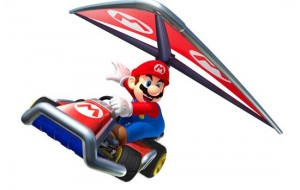
Another solid show from the gang this week, and a great new format for lists– now with direct quotes from you guys seamlessly integrated in! The list this week is all about Mario Kart and the best and worst of the series; the news is normal, the what we played is normal, and everything else is normal. Enjoy!
Something was being goofy with the uploader last night, so unfortunately this is getting to you about 12 hours late. No worries, though! We’ve got plenty more features coming at you later tonight…
Subscribe via iTunes by clicking this thing!
Subscribe with Google by clicking this thing!
Subscribe with Yahoo something-or-other by clicking this thing!
‘Watch Dogs’ lead designer leaves Ubisoft, joins EA to work on Need for Speed
Posted on 12 years ago by Austin(@NE_Austin) in General Gaming, News, Podcast Stories, Wii U | 0 comments
It’s unknown how reactionary this particular story should be as details are somewhat fuzzy, but here’s what’s known so far:
Jamie Keen worked at Ubisoft Montreal during the development of Far Cry 3, where he acted as lead game designer. This week, some of the gaming press took a look at his LinkedIn profile, and discovered that it lists him leaving Ubisoft Montreal in February 2012 to join up with EA and work on their upcoming Need for Speed title– many months before he finished work on Far Cry 3. Some are suggesting this is a typo, and it means to read “February 2013”. If it does, it means that he left during the development of Watch Dogs, on which he was also said to be lead designer.
If it isn’t a typo and he did leave in 2012, it means he was never lead designer on Watch Dogs and he didn’t finish work on Far Cry 3, which seems unlikely. Why he left the company in the first place is unknown, but we’ll keep you posted if this goes anywhere!
PETA: Assassin’s Creed IV whaling mechanic is “disgraceful”
Posted on 12 years ago by Austin(@NE_Austin) in General Gaming, News, Wii U | 0 comments
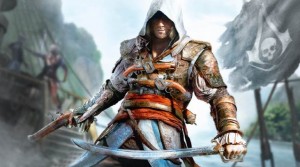
“PETA encourages video game companies to create games that celebrate animals – not games that promote hurting and killing them.
– PETA Statement
PETA is no stranger to criticizing video games– they’ve said themselves that they intentionally blow things out of proportion in order to draw attention to their legitimate cause– and today we get to hear about their opinions on Assassin’s Creed IV: Black Flag, specifically the game’s whaling mechanic.
Whether the criticism is legitimate or not isn’t really up for debate– even PETA would likely admit (behind closed doors, of course) that going after artistic mediums isn’t always wholesome– but the question of whether the game is “glorifying” the action is still completely unknown. Plenty of games have violence, but not all of them glorify it, and we’ll have to wait and see whether this particular mechanic is made out to be a moral positive or simply a fact of life, as it was back then.
Ubisoft: No multiplayer naval battles in Assassin’s Creed IV
Posted on 12 years ago by Austin(@NE_Austin) in News, Wii U | 0 comments
– Lead Content Manager Carsten Myhill
Well, that’s pretty unfortunate! I remember watching the E3 2012 footage of Assassin’s Creed III and thinking that the naval battles were one of the most interest parts from the game, and you would think they would be primed for multiplayer considering the mechanics of the gameplay.
What’s interesting is that Myhill also said they were focusing all of their resources on creating the perfect “open-world pirate experience”, so they don’t have the resources to do multiplayer ship-battling.
Rumor: January’s Wii U sales weren’t quite as low as initially thought due to people returning the console
Posted on 12 years ago by Austin(@NE_Austin) in News, Podcast Stories, Rumors, Wii U | 0 comments
By NPD’s count, the Wii U had an absolutely abysmal January, selling somewhere between 49K and 59K units throughout the whole month. According to a source at Gamasutra, however, they may have been a little closer to 100K in actuality.
The source claims that about 100,000 units went off store shelves during the first month of the year, but nearly 40% of that was eventually returned by people who were planning on re-selling the system for a profit on eBat, Craigslist, and the like. Because demand is so low for the system, they were unable to re-sell. This is what caused the 50K-60K readout by NPD, despite the fact that 100K units had been sold in total without considering returns. Another source at Gamasutra helps confirm this, saying that for every 100 Wii U units sold in any given store this past January, roughly 40-50 of them were returned.
The only problem? If this is true, it arguably bodes worse for Wii U than if it’s not true. Having a 40% return rate on your console– regardless of why– is definitely not a good thing.
Nintendo requires developers to partner with Japanese companies in order to release games in Japan
Posted on 12 years ago by Austin(@NE_Austin) in General Nintendo, News, Podcast Stories | 0 comments
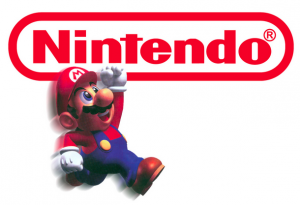
If you’re a game developer who is solely (or majority) owned by folks who are not Japanese, Nintendo says you’re going to have to partner up with a Japanese company if you want to release your game in that region on one of their consoles. It’s an interesting rule to have in place, and one that doesn’t affect too many publishers– but indie developers get hit pretty hard when trying to bring their games overseas.
Various developers have chimed in on the subject below:
– Renegade Kid’s Jools Watsham
“Do we wish we could self-publish in Japan? Certainly. But we trust that they have their reasons for the above rule, and we will do our best to get our games to eager Japanese fans, whatever it takes.”
– Gaijin Games
– Two Tribe’s Shan Poon
Guillemot: Watch Dogs team grew substantially after revelatory E3 reveal
Posted on 12 years ago by Austin(@NE_Austin) in News, Wii U | 0 comments

Watch Dogs is shaping up to be one of the most highly anticipated titles of the year, in part due to the fact that after its E3 reveal– and the positive reaction from press and gamers– Ubisoft significantly ramped up the development of the game, adding people to the teams until they had enough minds working on the project to realize the vision while simultaneously launching it across platforms and across generations.
“You always have great ideas, but you need enough people to bring it to life. After E3, we really made sure they had all the teams they needed and all the capacity they wanted to fullfil their dream. It’s an open world that is well-adapted to what people want to play today. So there’s good potential for success.”
– Ubisoft CEO Yves Guillemot
I think that the game is bound to be successful given where and when it’s launching, but which platforms it will be successful on remains to be seen. I would guess a strong PS3/360 showing, and a fairly weak (due to install base) showing on Wii U and PS4/720. As a small sidenote, Guillemot once again iterated that Ubisoft does like the Wii U, but they need it to sell more before they can go all in with it.